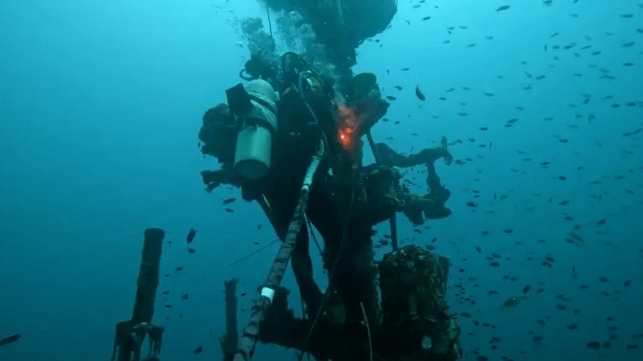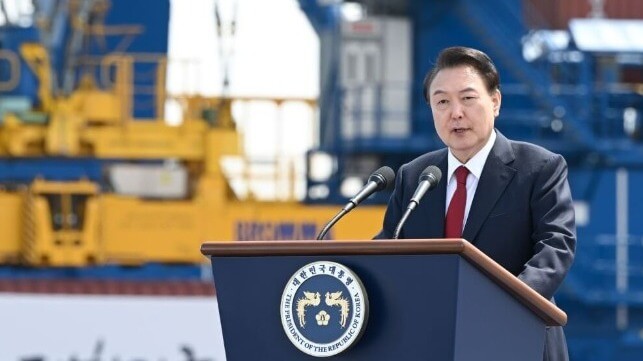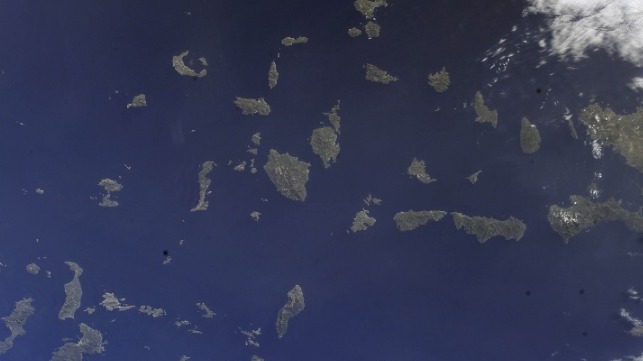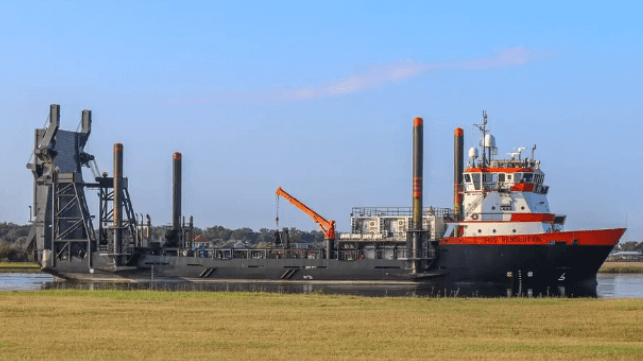Germany has expressed little concern over the devastating impact of the Gaza war on Palestinians.

NICARAGUA has gone to the International Court of Justice (ICJ) with a complaint against Germany for “facilitating the commission of genocide” against the Palestinian people, in coordination with Israel. The South American country has called upon the ICJ judges to stop Berlin from providing Israel with weapons and other assistance.
In its 43-page submission, Nicaragua has stated that Germany stood in violation of the 1948 UN Genocide Convention. “By sending military equipment and now defunding UNRWA [UN agency for Palestinian refugees] … Germany is facilitating the commission of genocide,” the Nicaraguan representative said in his opening statement before the top UN court. It is “imperative and urgent” the court ordered such measures, given that the lives of “hundreds of thousands of people” were at stake.
Germany has politically and militarily backed Israel’s war on Gaza, which has killed more than 33,000 people, most of them women and children. The country is the second biggest arms supplier to the Zionist state after the US, accounting for 30 per cent of the weapons being used by the Israeli military in its war on Gaza. The two countries together provide 98pc of the weaponry, making them complicit in the ongoing genocide.
German arms exports to Israel have increased tenfold in the last one year. According to a report by the Stockholm International Peace Research Institute, the major surge in arms supply came during Israel’s offensive. Berlin has also stopped its funding to UNRWA after an unsubstantiated allegation by Israel that some staff members of the UN agency were involved in the Oct 7 Hamas attack inside Israel. Germany had hitherto been the second-largest contributor to the UN organisation.
Germany has expressed little concern over the devastating impact of the Gaza war on Palestinians.
The European nation, which is a signatory to the Genocide Convention set up in the wake of the Holocaust, is among the very few countries that are not willing to support the increasing international demands for a ceasefire. It has continued its arms supply to Israel despite widespread public protests within the country and outside. Germany abstained twice from a vote in the UN General Assembly calling for a ceasefire in Gaza.
While proclaiming unconditional support for Israel, German leaders have expressed scant concern over the devastating impact of the war on the hapless Palestinian population. When asked about her government’s scant efforts towards ensuring a ceasefire, Foreign Minister Annalena Baerbock said: “It is not the job of politicians to tell the guns to shut up.” Her stance may have softened after her latest tour of the region, describing the situation in Gaza as “hell”, but there is still no call for a ceasefire from Germany.
Nicaragua’s government, led by the Sandinista National Liberation Front, has filed charges against Germany in the wake of the ICJ’s ruling in a separate case filed by South Africa in January this year ordering Israel to do “everything in its power to prevent genocidal acts”. Pretoria accused Israel of perpetrating genocide in the Gaza Strip. The UN court has also ordered the Zionist state to step up access to humanitarian aid for Gaza.
Although the ICJ’s rulings are obligatory, Israel, as usual, has flouted its orders and has, instead, intensified its military operation, reducing a large part of the occupied territory to rubble. It has also rejected the UN Security Council’s resolution calling for a ceasefire. It is obvious that the support of the US and some Western countries, particularly Germany, has lent impunity to Israel’s genocidal war.
A major reason for Berlin’s resolute support for Israel is its guilty conscience over the Holocaust, carried out by Hitler in the 1940s, which exterminated millions of Jews. Ironically, Germany has tried to make amends for its Nazi past by backing the Zionist state, which is itself carrying out a genocide now.
Germany has long made Israel’s security its Staatsräson (‘reason of state’). The term was first coined by a German ambassador to Israel in the early 2000s and has often been quoted by the German leadership to justify its unflinching support for the Zionist state. German Chancellor Olaf Scholz recently made another argument for his country’s support for Israel, saying that it was “a democracy”.
Such arguments trivialise the war crimes perpetrated by Israel, and give credence to the allegation of Berlin being an accomplice in the ongoing genocide in Gaza. Germany has rejected the allegations made by Nicaragua and declared that it has “violated neither the Genocide Convention nor international humanitarian law” and that it could demonstrate this before the ICJ.
It will, however, be hard for Berlin to refute the charges against its government, particularly as it is facing intense criticism from within for its blind support for Israel. The German government has banned all anti-Israel protests, declaring them anti-Semitic. But the restriction has failed to contain the growing public outrage over Israel’s war crimes. The strongest voice is coming from the administration’s own ranks.
A group of some 600 German civil servants have reportedly issued a statement calling on the government to “cease arm deliveries to the Israeli government with immediate effect”. The memorandum has accused Israel of committing war crimes in Gaza in contravention of international law. The statement cited the ICJ’s ruling in January that Israel’s military actions are “plausible acts of genocide”.
Surely, Germany is not the only Western country to have either actively backed Israel’s war crimes or looked away — an attitude that has exposed the hypocrisy of the so-called civilised world. Yet, while the growing public pressure at home and the horrors of Israel’s war have compelled a number of Western countries to moderate their stance, finally calling for at least a temporary ceasefire, there is no indication yet of Berlin giving up its support for Israel’s war.
Since the US does not recognise its jurisdiction, it cannot be charged by the ICJ. But Germany can. Nicaragua has done a commendable job by taking the case to the court, highlighting Berlin’s complicity in war crimes. It may not stop Germany’s military and political support for Israel, but will certainly help expose the so-called morality of Western nations.
The writer is an author and journalist.
zhussain100@yahoo.com
X: @hidhussain
Published in Dawn, April 10th, 2024






